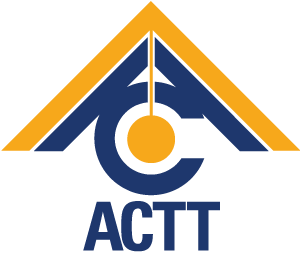His Excellency Professor George Maxwell Richards - ACTT Launch - November 28, 2005
Address by His Excellency Professor George Maxwell Richards TC, CMT, PH.D.
President of the Republic of Trinidad and Tobago, on the occasion of the Launch of the Accreditation council of Trinidad and Tobago at the Crowne Plaza on 28th November, 2005 at 6:30 p.m.
Thank you, Master of Ceremonies.
- Senator the Honourable Hazel Manning, Minister of Education and Acting Minister of Science, Technology and Tertiary Education
- The Honourable Colm Imbert, Minister of Works and Transport
- The Honourable Stanford Callender, Minister in the Office of the Prime Minister (Tobago Affairs)
- Dr. Janet Stanley-Marcano, Chairman of the Accreditation Council OF Trinidad and tobago and other members of the Council
- Mrs. Claudia Groome-Duke, Assistant Secretary for Education and Representative of the Honourable Orville London, Chief Secretary of the Tobago House of Assembly
- Dr. Maria Jose Lemaitre del Campo, Secretary General, National Commission for Accreditation, Chile
- Dr. Ethley London, chairperson, Caribbean Area Network for Quality assurance in Tertiary Education (CANQATE) & Executive Director of the University Council of Jamaica
- Representatives of the Media, Other distinguished Ladies and Gentlemen:
Ladies and Gentlemen, we have gathered, this evening, for a most important event – the Launch of the Accreditation Council of Trinidad and Tobago. It is an event that has been long in coming and one that could not have been postponed further. The Council must now embark on a task that is, by no stretch of the imagination, an easy one.
At the outset, I wish you, the Chairman and Members, collective wisdom, perseverance, flexibility, foresight and all that will be necessary to make correct decisions in this very critical aspect of the development of education in our country and consequently the development of our nation as a whole.
University education can be said to be guided by the four A’s – access, academic standards, accountability and autonomy – all of them reflecting legitimate public interest in the affairs of the University. Clearly, there can be no problem with increased access except that it is difficult to maintain academic standards unless resources are increased to match. Within recent times, Universities have increased the load on their teachers and tried to improve their methods of teaching, but that cannot be extended into the indefinite future.
Accountability is more of a problem because Universities are mostly ill prepared for the business methods that they are nowadays expected to adopt. Criteria designed for business management would seem to be incompatible with the mission of a University and the Universities themselves – it must be said – are not always plausible when they devise their own set of performance indicators. Perhaps a better remedy is that real business men and women become more conversant with the Universities’ affairs and help in their task. One can often more easily rely upon their qualitative, but locally knowledgeable, judgments than upon distantly generated, quantitative measures of dubious applicability.
Then, finally, autonomy: there should be no outside control over the teaching and research of Universities – and therefore over the interpretation of their missions. Without that autonomy they will be unable to make so readily or so effectively the contributions that the community expects of them.
The Notion of Equality
Quality, Equality and Meritocracy
“As to our Universities, I’ve come to the conclusion that they are elitist where they should be egalitarian and egalitarian where they should be elitist”, (David Lodge, Nice work, 1988)
We all know what quality means – at least until we try to define it. We certainly recognize quality when we see it. Or do we? At the simplest, most obvious level.




 Translate
Translate